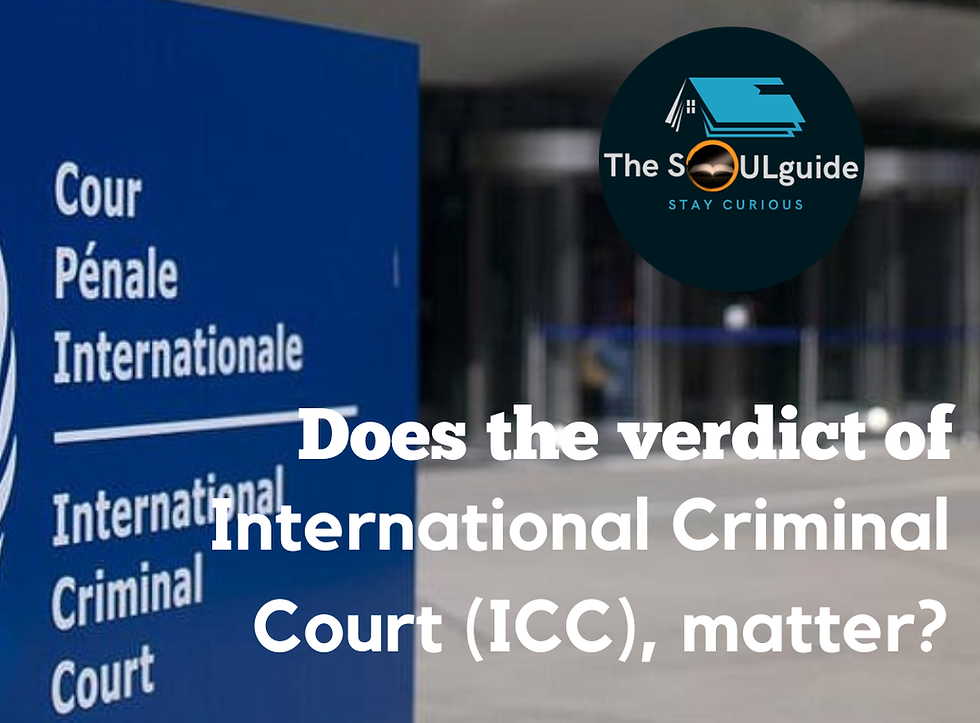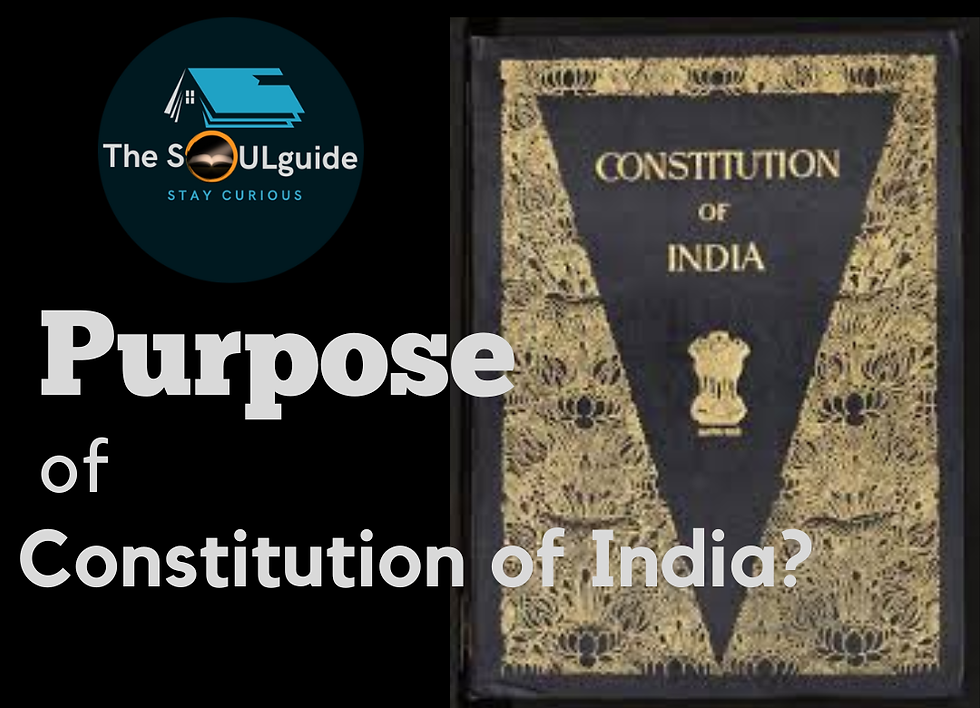How 'Education' took shape in India
- TheSoulGuide

- May 22, 2022
- 4 min read
Updated: Oct 6, 2022
You must have wondered that the books we read today in our schools and colleges on the basis of which we get employment, how they evolved? What used to be the education like in historical times? During the times of our Great grand parents and even prior to that, who made those systems and what were the influences on our ancient education system and on current system.
Education in India is believed to have emerged around 1500BCE and lasted till 500BCE and this was the Vedic education system (that is the Atharva Veda, Sama Veda, Yajur Veda and the RigVeda).
It emphasized on two ideas the, “this-worldly knowledge” and the “Other-worldly knowledge”, the major focus used to be on the ideals of individual's life through self-realization. Realization means Knowledge and experience which starts with knowing the self. It was more of spiritual and religious teachings which became the source of origin of Hindu philosophy as well.
Education during ancient times was given at Gurukul's where the child was taught to lead a disciplined life and was expected to leave all the bad habits and go for the morality, brahmacharya (celibacy) sacrifice, simplicity, honesty, service, dutifulness, modesty, freedom from conceit.

But the society was eroded by the discriminatory aspect of the society that is the Varna system, in which the society was divided into 4 Varna's that is the Brahmins(Pundit's, rishi's), Kshatriya (Kings, warrior class) Vaishya (taking care of cattle, agriculture) and Shudras.
The education was only allowed to the Upper caste while the Shudras were denied even basic rights and they were the slave classes. That is also where the current cast system in India stems from. This caste system was made more rigid and exploitative by the Kings who ruled India later, as they ruled by saying that 'Kings are the men of god sent to do good to the society and everyone has to obey them' (this was also the way to establish the hegemony so the public don't revolt) and later the British's saw the opportunity to divide us and rule thrpugh these divisions that existed in the society (one of the reason , not the only reason).
The Varna system also lead to the emergence of rebel class with in the society giving birth to the Buddhism (between late 6th century and the early 4th century BCE) and Jainism (said to be 2,500 years ago) as it was considered that the Brahmins have become the oppressors of the society through this Varna system.
But the education system during these times also gave birth to many known and popular figures who are still known for their work, such as the Aryabhata, Bhaskara I, Kautilya, Brahmagupta and many more. It paved the way for eminent universities as well such as the Nalanda and the Taxila, one of pioneers of India and a center for modern education which was destroyed by Alaud-Dīn Khaljī (Alauddin Khilji).
India has been historically a land of invasions. So, then came the Islamic rulers in mid medieval era and they introduced the Persian language and also started madrassas and Kuttabs, these madrassas were the Islamic center for teaching grammar, philosophy, mathematics, and law. Many mosque were built and it was the emergence of the Islamic architecture in India which we today see through Qutub Minar and then the Red fort (built by Mughals)etc.
Mughals started education system where subjects like medicine, agriculture geography, and texts from other languages and religions were taught. However, Aurangzeb, adopted strict and orthodox Muslim education policies.
Then came up the Europeans specifically the British who tried to make changes in the education system to make them able to rule comfortably on Indian subcontinent as it wasn't feasible to bring people from Europe( specifically the Britain) to India to work. So, the basic purpose was to create a working force among the Indians itself to work in the British administration.
There were many debates regarding the introduction of education in English or the vernacular language (local languages) and English was chosen the language of medium for education.
In 1834, Thomas Babington Macaulay who is famously called the father of modern English education in India structured and brought changes in the system. He was of the view, that western science was far superior to Indian knowledge. To quote him, “It is, I believe, no exaggeration to say that all the historical information which has been collected from all the books written in the Sanskrit language is less valuable than what may be found in the most paltry abridgments used at preparatory schools in England.”
He wanted to create a pool of Indians who would be able to serve British interests and be loyal to them. This class would be “Indian in blood and colour, but English in tastes, in opinions, in morals and in intellect.” to quote him.
Later on then Wood’s Education Despatch – 1854, a document of immense historical importance for education in India regularized the English education in India. Woods once said that a day would come when the vernacular languages(that is Indian local languages) would die a natural death. However, today he has been proven wrong. As the number of people who use the local languages or the languages other than the English language is increasing day by day in India as well as the World. The literature in many languages other than English is also expanding and evolving.
It can be said that it is because of these few individuals, that English is treated as a native language in India but thats not our language.
If your parents think they don't know English tell them that that's fine as English is just a language and not to treat them as a skill. Times are gone when English speaking was considered to be proud thing. We shall be proud and happy with our culture and language.
Now, we see a different era where technology and gadgets are the new normal. Everything is available on the Internet and you need not to go to specific places to access the content in general. India has come far way, Britishers left us at 12% literacy rate and now we are 70%+ and still miles to go.
stay tuned for more.




Comments